Ovarian Cyst Surgery: Recovery Tips and What to Expect
Fertility Treatment
Ovarian cysts are common among women of reproductive age, and while many cysts go away on their own, some require surgical treatment. Ovarian cyst surgery is a common procedure that aims to remove cysts that are causing pain or other symptoms.
Cyst removal is one of the most important major surgeries. Therefore, it is recommended that patients take enough rest after the surgery and give their body time to recover. Although ovarian cyst surgery recovery time varies in every patient, it takes around 12 weeks for the body to heal completely after ovarian cyst surgery. In the case of ovarian cyst surgery during pregnancy, the recovery may be longer and more complicated.
In this essay, we will discuss what to expect after ovarian cyst surgery, including the recovery process, potential complications, and tips for managing post-surgery symptoms.
In the case of ovarian cystectomy with general anesthesia, patients may feel dizzy, nauseous, and nappy for the first 12 hours. Post-surgery pain will improve by taking pain relievers such as ibuprofen within a few days.
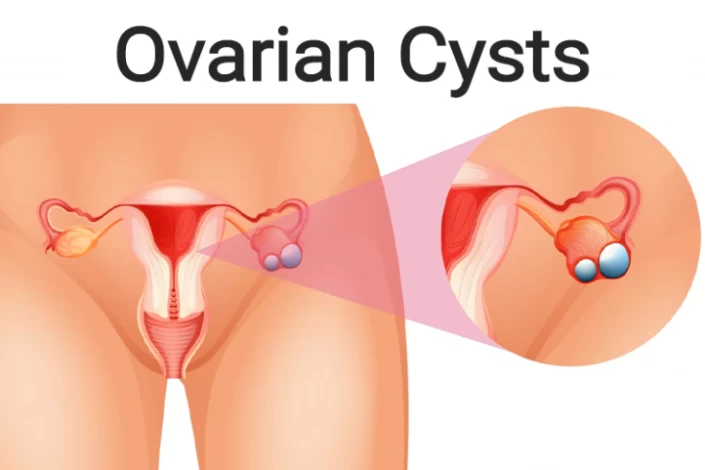
What Is an Ovarian Cyst Surgery and What Does it Treat?
An ovarian cystectomy is a surgical procedure involving removing an ovarian cyst. An ovarian cyst is a fluid-filled sac that develops on or within the ovary. Most ovarian cysts are benign and do not cause any symptoms. However, in some cases, the cysts can grow larger, cause pain, or rupture, leading to complications. If you want to know more about ovarian cyst rupture, don't forget to read this article.
Ovarian Cyst Surgery can be performed using traditional open surgery techniques or minimally invasive laparoscopic techniques.
Types of ovarian cyst removal surgery include:
Laparotomy (open surgery)
Open surgery is recommended when the cysts are large, numerous, or cancerous. During this surgery, the surgeon makes a large incision on the abdomen to access the ovary and check the cyst and surrounding areas.
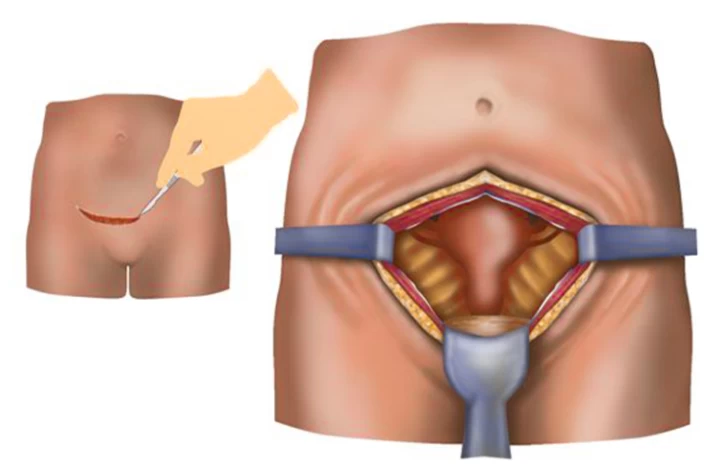
Laparoscopy (key-hole surgery)
During a laparoscopic ovarian cyst removal procedure, the patient is placed under general anesthesia. The surgeon then makes 2-3 small incisions in the abdomen, through which they insert a laparoscope and other surgical instruments. The laparoscope allows the surgeon to see inside the abdomen and locate the cyst.
The surgeon then uses the instruments to remove the cyst from the ovary carefully. In some cases, the entire ovary may need to be removed if the cyst is too large or if there are concerns about cancer.
Once the cyst is removed, the surgeon will examine the ovary and surrounding tissues to ensure no other cysts or abnormalities. The instruments are removed, and the incisions are closed with sutures or surgical glue.
This procedure is also known as keyhole surgery because the incisions are small, and the surgeon uses specialized instruments to perform the surgery.
What to Expect After an Ovarian Cyst Removal?
Light exercise, like a quick 10- to 15-minute walk, is advised for patients recovering from ovarian cyst removal surgery in order to increase circulation and speed up their healing. The surgical technique (laparotomy or laparoscopy) and personal health variables affect the recovery period.
A two- to four-day hospital stay is usually necessary for patients having a laparotomy, which entails a larger incision. Because the procedure is more invasive, it may take about four to six weeks to fully resume regular activities or work. On the other hand, patients who undergo laparoscopic surgery, which makes smaller incisions, typically stay in the hospital for less time and can go home the same day or within 24 hours. Laparoscopy patients usually have less pain after the procedure and are able to return to their regular activities in a day or two. However, in order to promote healing, they should refrain from heavy lifting, exercise, and strenuous activities for about four to six weeks.
Under some circumstances, the recovery period following ovarian cyst removal surgery may be extended, including:
·Diabetes and other chronic illnesses, which can hinder the body's ability to heal.
·Unhealthy lifestyle choices that raise the risk of complications and delay tissue repair, such as smoking or binge drinking.
·Obesity at the time of surgery, which can make recovery more difficult and raise the risk of complications after the procedure.
Patients are required to maintain a healthy lifestyle, adhere to their surgeon's postoperative instructions, and schedule follow-up appointments to track their healing progress in order to maximize their recovery. If you want reduced complications and promote a quicker, easier recovery, you should follow the aforementioned recommendations.
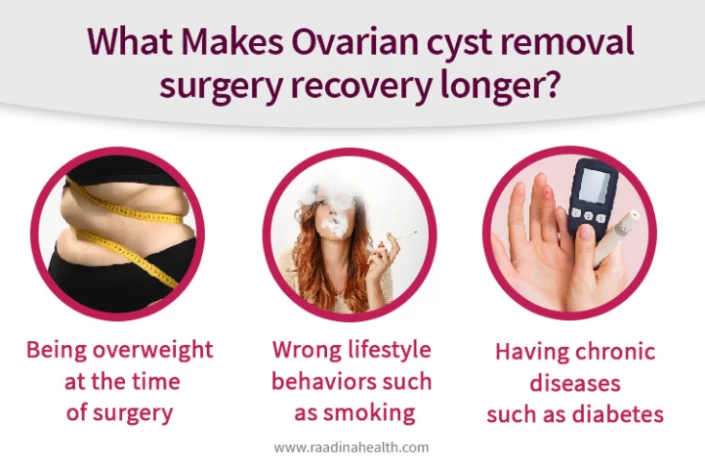
Can the Ovarian Cyst Surgery Affect My Fertility?
Ovarian cyst surgery can potentially affect female fertility depending on the specific circumstances and the type of surgery performed. In general, simple cyst removal or cystectomy where the ovary is preserved may have minimal impact on fertility. However, if the cyst is large or complex, it may require oophorectomy (removal of the ovary) or salpingo-oophorectomy (removal of the ovary and fallopian tube).
The removal of one ovary may reduce the overall ovarian reserve and potentially affect fertility. If both ovaries are removed, it can cause female infertility and menopause, especially if a woman is not near the natural age of menopause. Additionally, removing the fallopian tube(s) can affect the ability of the egg to travel from the ovary to the uterus and increase the risk of ectopic pregnancy.
It is important to discuss the potential impact on fertility with a doctor and explore options for preserving ovarian cyst surgery during pregnancy, especially for women who plan to have children in the future.
What are the Complications of Ovarian Cyst Surgery?
Side effects after ovarian cyst removal may include:
- Pain in the lower abdomen, the pelvis, or the incision site;
- Bleeding;
- Vaginal bleeding or discharge after the surgery;
- infection, which can cause fever, pain, and swelling;
- Scarring;
- Blood clots;
- Injury to surrounding tissues, ovaries, or fallopian tubes;
- Changes in menstrual cycle;
- Anesthesia risks such as Allergic reaction;
It is important to follow your doctor's post-operative instructions carefully to minimize the risk of complications and promote healing. If you experience any unusual symptoms or complications after surgery, contact your doctor immediately.
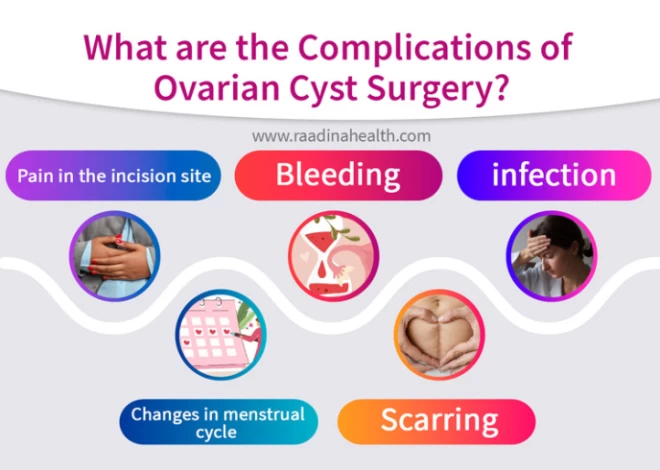
What Are Homecare Instructions After Ovarian Cyst Surgery Recovery?
Recovery time at home following ovarian cyst removal surgery can vary. The patient should refrain from applying pressure to their abdomen after the cyst removal procedure. Moreover, the irritation of the tube that was passed down the throat during anesthesia may cause sore throats in the patients, which throat lozenges can help with.
Additionally, they should refrain from physical activity for approximately six weeks following a laparotomy and at least one week following a laparoscopic procedure. Additionally, patients should adhere to all post-operative instructions, including taking pain medication, keeping doctor's appointments, eating light, easily digested food, and monitoring their incisions for infection. Additionally, until the doctor gives the all-clear, sexual activity should be avoided.
How to Speed Up the Ovarian Cyst Surgery Recovery?
To speed up Ovarian cyst removal surgery recovery, patients should:
- Have a healthy diet that includes high-fiber foods such as fresh fruits and vegetables;
- Drink plenty of water every day;
- Change wound dressing regularly;
- Quit smoking to lower the risk of wound infection;
- Avoid drinking alcohol;
- Get regular exercise and physical activity to increase the strength of the muscles.
- Avoid lifting, pushing, or pulling heavy objects for a few weeks;
- Avoid long trips over four hours because it may raise the risk of blood clotting in the legs;
- Follow the post-surgery instructions given by the surgeon.
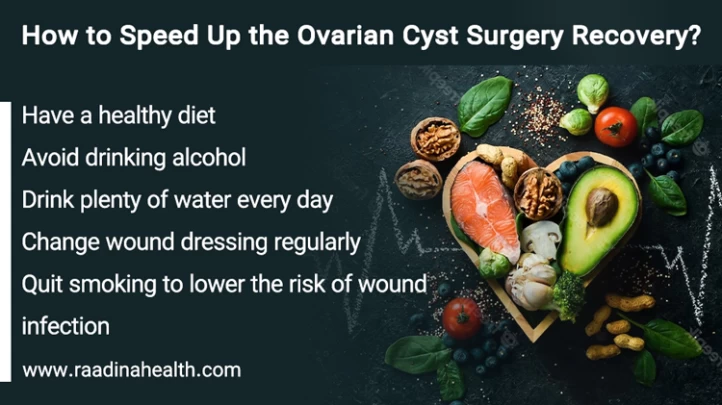
When to Return to Work After Ovarian Cyst Surgery?
Patients can return to work four to six weeks after laparoscopic ovarian cyst surgery. However, patients who have to stand all day or pull, push, and lift heavy objects at work should check with their doctor before returning to work.
Contact us for a free initial consultation about Ovarian Cyst Surgery
Frequently Asked Questions about Ovarian Cyst Surgery
Will I lose weight when they remove the ovarian cysts?
The removal of an ovarian cyst may not directly cause weight loss. However, cyst removal can sometimes improve hormonal balance and may lead to weight loss.Also, ovarian cyst surgery can cause stress on the body. Therefore, it is common for patients to experience some weight fluctuations after surgery due to factors such as fluid retention, changes in appetite, or changes in physical activity levels during recovery time.
How long does ovarian cyst surgery take?
The duration of ovarian cyst surgery can vary depending on the size and location of the cyst, as well as the extent of the surgery. Laparoscopic surgery usually takes 1-2 hours, while open surgery may take longer.
What type of anesthesia is used for ovarian cyst surgery?
Ovarian cyst surgery is usually performed under general anesthesia.
Can ovarian cysts return after surgery?
There is a chance that ovarian cysts can return after surgery, especially if an underlying condition causes the cyst. Patients can manage and monitor ovarian cysts after surgery by following post-operative instructions.
Can I resume normal activities after ovarian cyst surgery?
The doctor will provide the patients with specific instructions on when to resume normal activities after ovarian cyst surgery. They may need to avoid physical activity, lifting heavy objects, or sexual activity for some time after surgery.
How long does ovarian cyst removal surgery take?
The duration of ovarian cyst removal surgery can vary depending on several factors, including the size and location of the cyst, the surgical approach used, and any potential complications that may arise during the procedure. In general, laparoscopic surgery to remove an ovarian cyst can take anywhere from 30 minutes to 2 hours, while open surgery (laparotomy) may take longer, typically 1 to 3 hours.
Will I lose weight when they remove the ovarian cyst?
Not necessarily. It is possible that you may lose weight after the removal of an ovarian cyst, but it is not guaranteed. The weight loss may occur due to decreased inflammation and fluid retention caused by the cyst. Also, if you have PCOS, proper treatments such as medication, dietary supplements, or lifestyle changes may result in weight loss.
What are long-term side effects after ovarian cyst removal?
Most women recover without lasting issues, but some may experience mild pelvic pain, temporary hormonal changes, or scar tissue formation. Serious complications are rare if surgery is done laparoscopically.
How fast can an ovarian cyst grow back after surgery?
Recurrence depends on the type of cyst. Functional cysts may reappear within a few months, while benign cysts removed completely are less likely to return. Regular follow-up ultrasounds are recommended.
How long should you wait for sex after ovarian cyst removal?
Doctors usually advise waiting 2–6 weeks, depending on your recovery and the type of surgery performed. Pain, swelling, or discomfort are signs to delay resuming sexual activity.

 WhatsApp
WhatsApp
 Telegram
Telegram
 Facebook
Facebook
 Email
Email

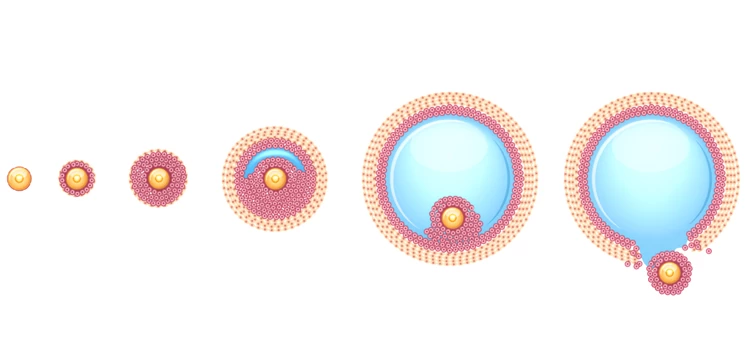
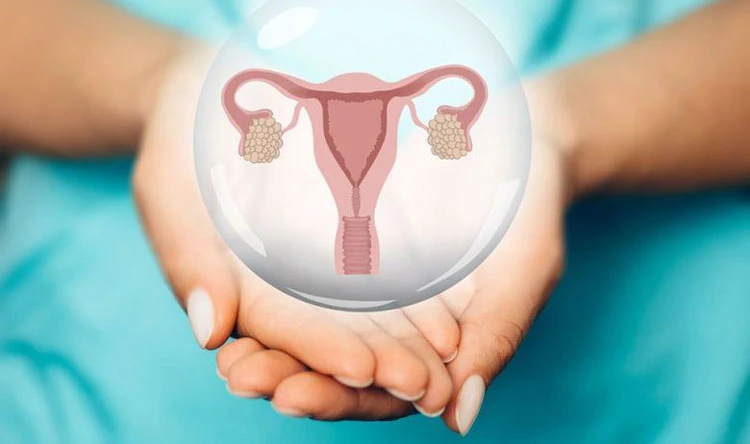
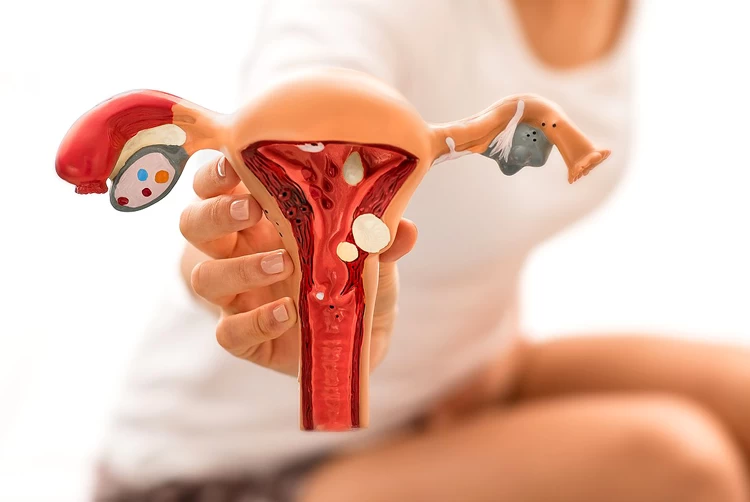





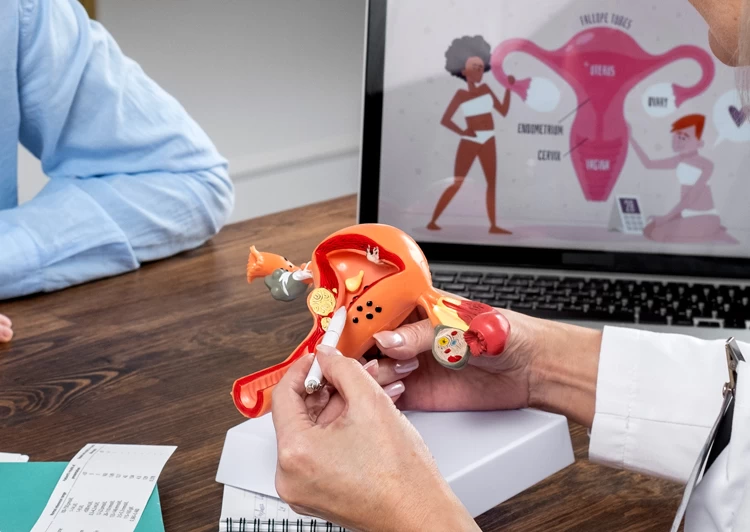


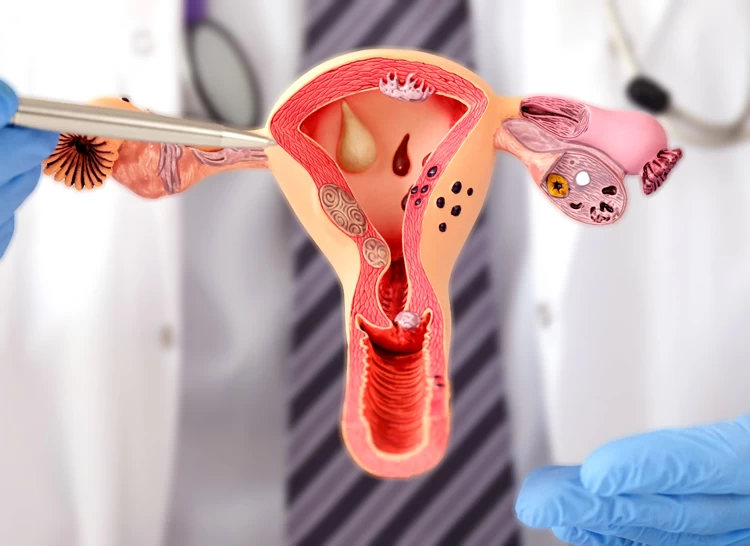

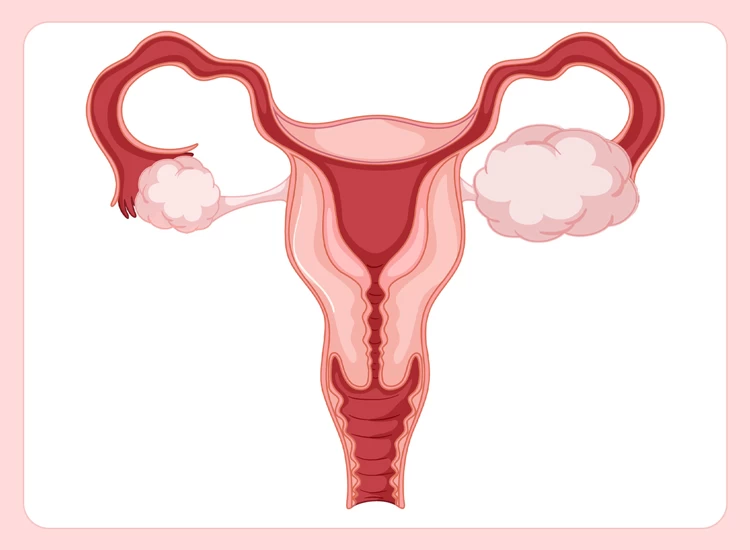
User
-can I use this laparotomy pic?
Fatemeh Vajhi
-impossible
User
-Can climb stairs
Ferdos Tahi
-yes,go up the stairs slowly
User
-Ibuprofen after surgery . I don't think so.
فاطمه وجهی
-it's a painkiller dear. why not?
User
-do i get vaginal checkup after surgery an my cervix checked after manipulator .. thanx
فاطمه وجهی
-hello there
after your treatment is over, you can go for a checkup to make sure everything is fine
User
-Do you lose weight after the surgery? I'm overweight because of the cyst affecting hormones.
فاطمه وجهی
-Dear user, it is better to take hormone therapy after the surgery, in order to get back to balanced rates. After that, your body metabolism will go back to normal and eventually losing weight would be easy.
User
-Buenas tardes , me estirparon el ovario izquierdo y me drenaron liquido del derecho ,tenia dos absesos me hicieron cistectomia , luego de 4 meses y medio aun siento dolor en las piernas cuando empieza la luna llena, o dolor en los riñones cuando me estreso por algo es normal?, ya estoy de nuevo trabajando pero se me dificulta estar mucho tiempo de pie , que me recomienda?
کارشناس رادینا سلامت
-Hola, buenas tardes,
Un dolor leve es normal, pero si es intenso y constante, contacte al médico para que le haga una ecografía.